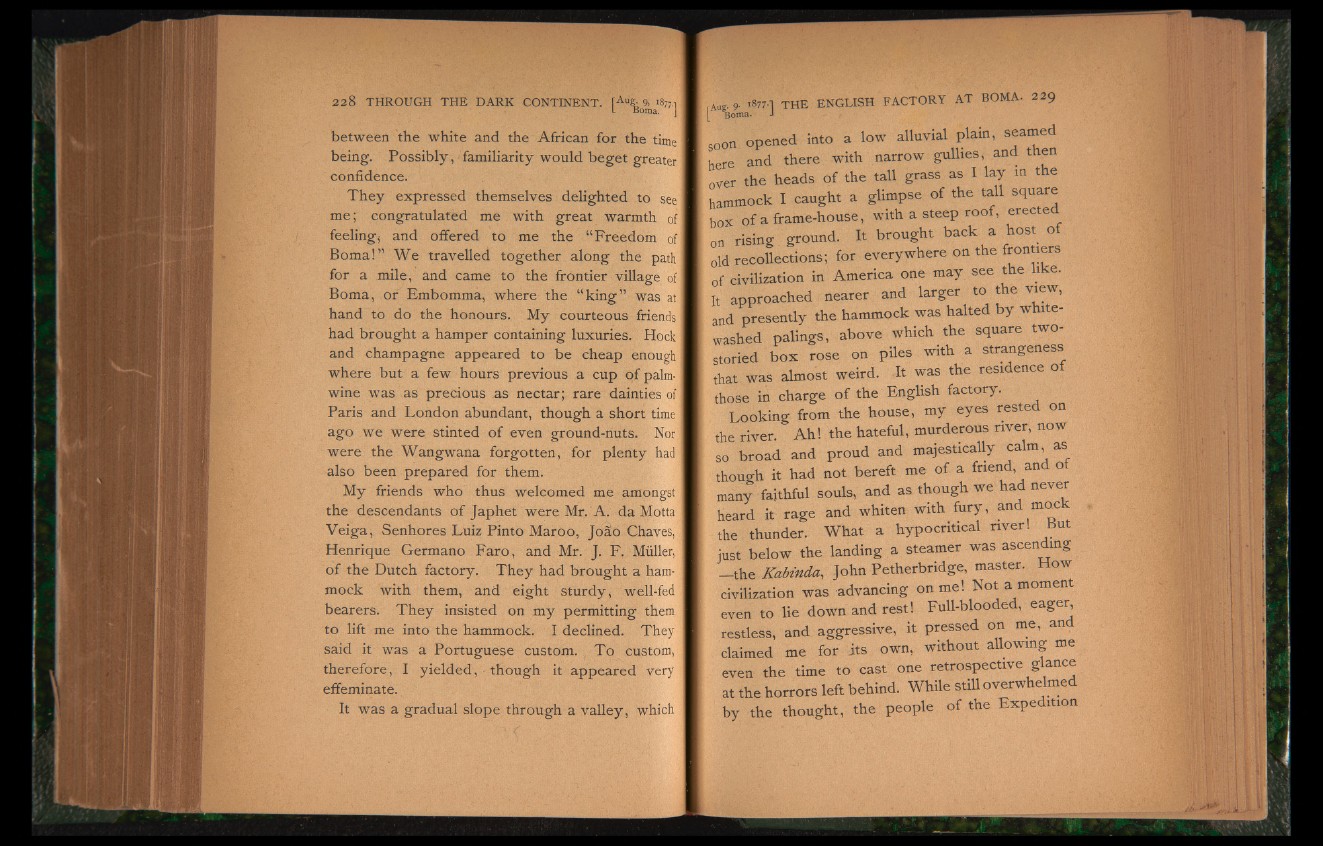
between the white and the African for the time
being. Possibly, familiarity would beget greater
confidence.
They expressed themselves delighted to see
me; congratulated me with great warmth of
feeling, and offered to me the “ Freedom of
Boma!” We travelled together along the path
for a mile, and came to the frontier village of
Boma, of Embomma, where the “ king” was at
hand to do the honours. My courteous friends
had brought a hamper containing luxuries. Hock
and champagne appeared to be cheap enough
where but a few hours previous a cup of palm-
wine was as precious as nectar; rare dainties of
Paris and London abundant, though a short time
ago we were stinted of even ground-nuts. Nor
were the Wangwana forgotten, for plenty had|
also been prepared for them.
My friends who thus welcomed me amongst
the descendants of Japhet were Mr. A. da Motta
Veiga, Senhores Luiz Pinto Maroo, Joao Chaves,
Henrique Germano Faro, and Mr. J. F. Muller,
of the Dutch factory. They had brought a hammock
with them, and eight sturdy, well-fed
bearers. They insisted on my permitting them
to lift me into the hammock. I declined. They
said it was a Portuguese custom. To custom,
therefore, I yielded, though it appeared very
effeminate.
It was a gradual slope through a valley, which
soon opened into a low alluvial plain, seamed,
here and there with narrow gullies, and then
over the heads of the tall grass as I lay in the
hammock I caught a glimpse of the tall square
box of a frame-house, with a steep roof, erecte
on rising ground. It brought back a host of
old recollections; for everywhere on the frontiers
of civilization in America one may see the like.
It approached nearer and larger to t e view,
and presently the hammock was halted by whitewashed
palings, above which the square two-
storied box rose on piles with a strangeness
that was almost weird. -It was the residence of
those in charge of the English factory.
Looking from the house, my eyes rested on
the river. Ah! the hateful, murderous river, now
so broad and proud and majestically calm, as
though it had not bereft me of a friend, an o
many faithful souls, and as though we had never
heard it rage and whiten with fury, and mock
the thunder. What a hypocritical river. But
just below the landing a steamer was ascending
—the Kabinda, John Petherbridge, master. How
civilization was advancing on me! Not a moment
even to lie down and rest! Full-blooded, eager,
restless, and aggressive, it pressed on me, an
claimed me for its own, without allowing me
even the time to cast one retrospective glance
at the horrors left behind. While still overwhelmed
by the thought, the people of the Expedition